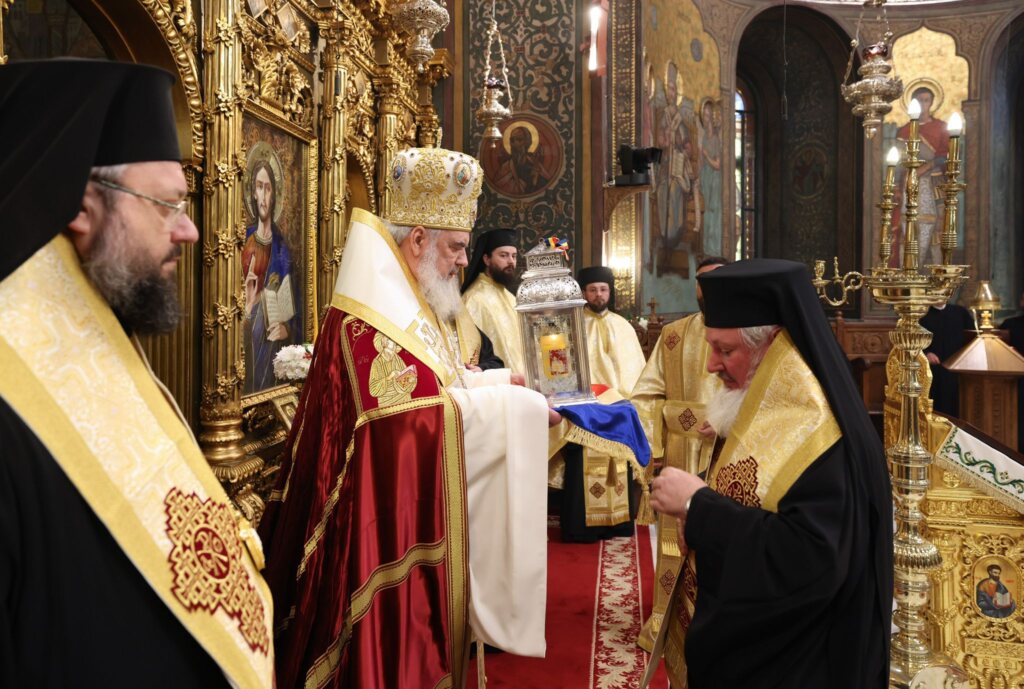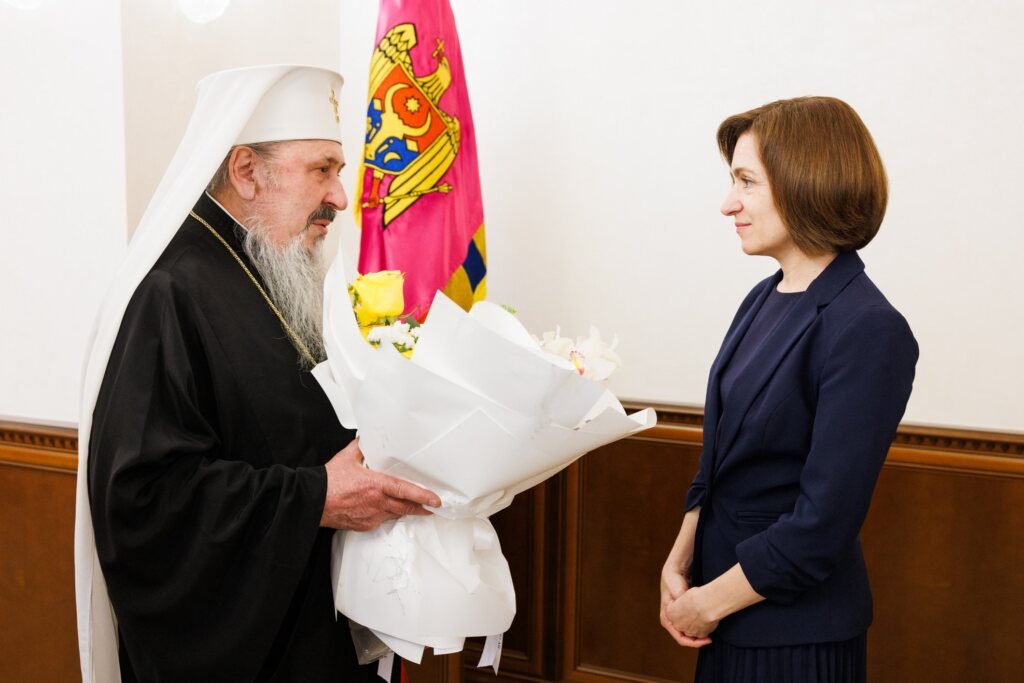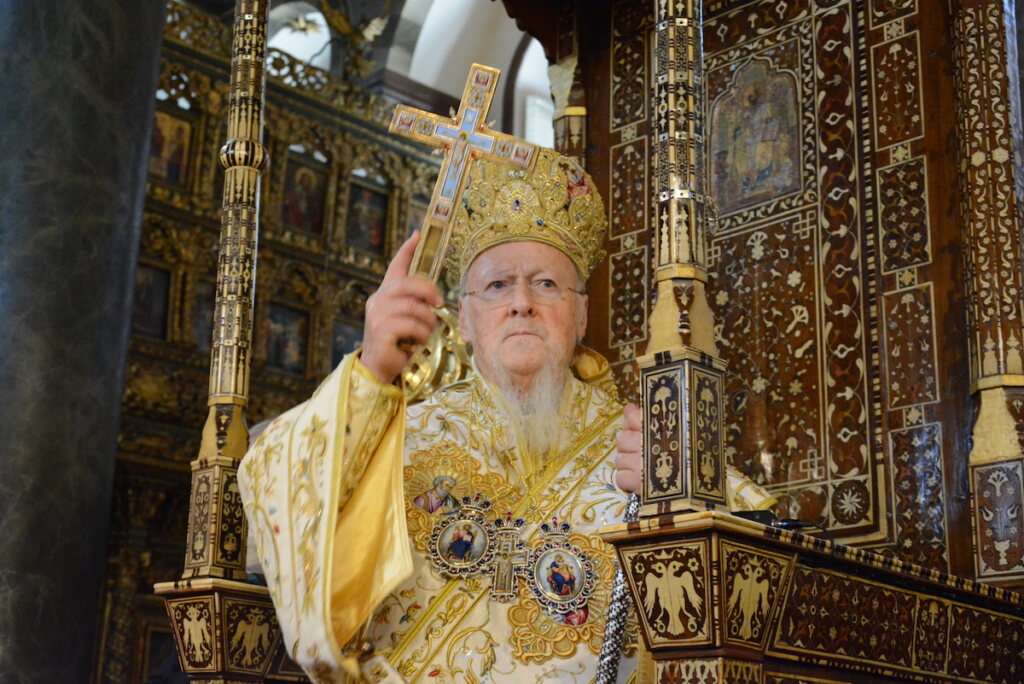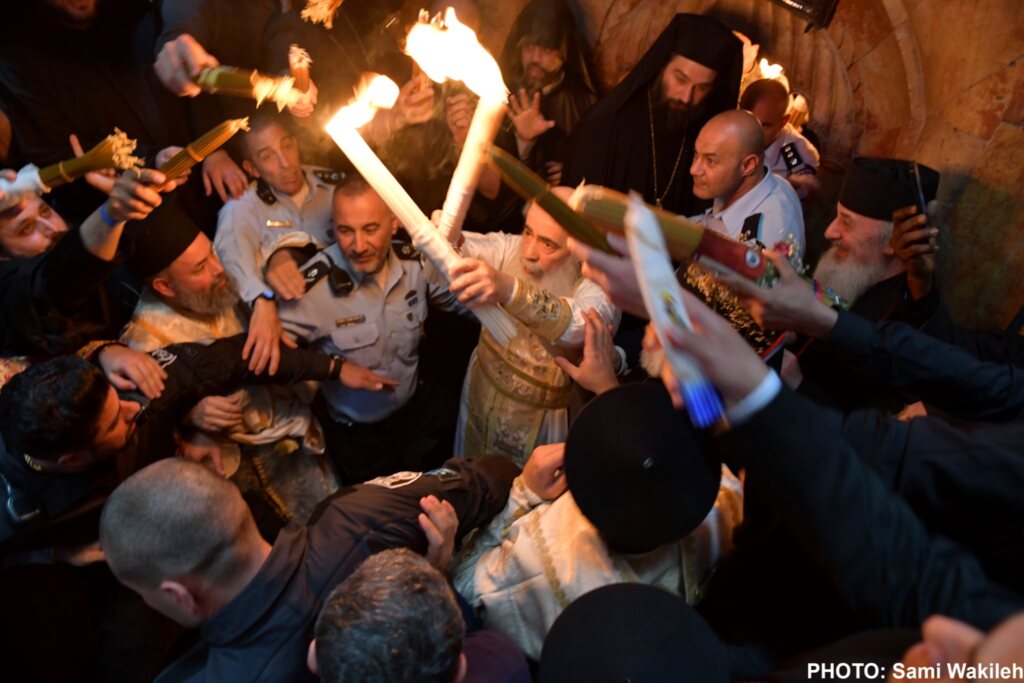Today, 30 December 2012, Sunday after the Nativity of the Lord, His Beatitude Daniel, Patriarch of the Romanian Orthodox Church, was in the middle of the monastic community of Tiganesti Monastery, county of Ilfov, where he participated in the Divine Liturgy.
His Beatitude Patriarch Daniel underlined, in the sermon delivered, the teaching of the evangelical pericope of the day: “The exit to Egypt, namely to another territory but the Holy Land, has a special significance. The Jews considered Egypt as a place of bondage because they had been slaves in Egypt for quite a long time, where from God released them in a miraculous way, through direct divine intervention, with Moses as leader. Egypt, the country of bondage and of darkness because they prayed to pagan gods, has become a territory of salvation now. The exit of Infant Jesus together with His mother and Righteous Joseph who was the protector of the child was changed into salvation. His alienation among foreigners has become a blessing for Egypt later on. Jesus Christ went to Egypt to show that sometimes the leaders of a country behave more cruelly to their own people, as Herod, than the foreigners. On the other hand, the exist to Egypt would show that Christ has not come into the world to save only the Jewish people, but some other nations too, who would be converted to Christianity. Thus, Jesus Christ, our Lord, would send later on a blessing over Egypt because the most beautiful monasteries flourished in Egypt”.
The One who had made all the richness of the earth and the beauty of the stars had no house of his own, said His Beatitude Daniel showing that “Jesus Christ, our Saviour, was so poor and He did not want to gather material things in this world in order to show us that in the temporary life here on the earth the most important thing is to spiritually enrich ourselves with spiritual gifts, not with the earthly ones, and that, in fact the ultimate and final house of every Christian is not in this world, but in the House of the Heavenly Father where there are many places according to the faith and work of every human during his or her lifetime on the earth. Thus, His lack of personal property makes us think of the House of the Father in Heaven. He uses the temporary material things only to express the blessing of God through them, but He is not attached to them because the one who believes in God makes no stable city in this temporary world”.
The Patriarch of Romania has also pointed out the importance of the people’s answer to God’s call to salvation: “In this Gospel, Jesus Christ, our Saviour, is a Man of trial, of sufferance and persecution, which thing would be seen in all His life because a part of the Jewish people accepted Him and another part rejected Him. This is not only a characteristic of a people, because in every people there is a part who receives the faith, who love God and thanks Him and another part who his hostile or indifferent. This is why it is very important to know that when God calls to salvation He calls all the people, but not all of them answer. The Holy Scriptures say that there are many called people, but few chosen, and Saint Gregory of Nyssa says: Those who answer the call are chosen. That is to say that God observes the man’s freedom and this freedom may be a strong faith or indifference, or even hostility”.
“On this Sunday after the Nativity of the Lord and the last of the year we see on one hand the blessing of the family, through Infant Jesus, and through the Mother of God who is celebrated the second Christmas day, a feast named Synaxis of the Mother of God. Yet, we see that the next day after the Synaxis of the Mother of God, Saint Archdeacon Steven is celebrated, the first martyr who suffered for his faith in Christ. On 28 December the 20,000 martyrs burned in Nicomidia are celebrated, and on 29 December, the 14,000 children killed at Bethlehem and surroundings by order of King Herod. The days when the Church scheduled the celebration of these martyrs in the calendar show us that Jesus Christ, our Saviour, had to suffer in this world, and not only He, but also those who believed in Him, the same as only the most faithful sons of the Church become martyrs. This fact also shows us that only the relics of the saints martyrs can be laid in the leg of the holy table in the altar when an Orthodox church is consecrated, just as the Antimis when the Divine Liturgy is celebrated”, His Beatitude also showed.






